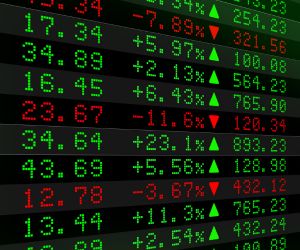HOW THE STOCK MARKET WORKS
Learn how the stock market works and start trading with confidence. Discover effective strategies and practical tips.

The stock market, a universe of infinite opportunities, operates like a chaotic bazaar, where the art of pricing is more a mystical ritual than an exact science. How is the value of a piece of a company determined? The answer is not always logical, and you don't need a PhD in mathematics, just a pinch of common sense.
The law of supply and demand
This is where the market becomes a drama theater. If there are more people wanting to buy a stock than sell it, its price goes up. Conversely, if there are plenty of sellers, the price goes down. Greed and fear are the invisible forces driving this daily spectacle.
For example, when Apple announces a revolutionary new iPhone, investors jump on the stock like it's the last donut on the counter. The price rises because everyone wants a piece of the new success.
Economic and financial factors
In addition to supply and demand, other factors come into play, such as companies' financial results, changes in economic policies, and even the latest tweet from an eccentric magnate. Don't underestimate the disruptive power of a tweet.
Analytical tools
Do you remember those graphs with rising and falling lines that look like a moving electrocardiogram? They are analytical tools that supposedly help predict the market's rhythm. As confusing as it sounds, there are those who swear by them.
Technical analysis: Studies chart patterns and trends. Perfect for market conspiracy theory enthusiasts.
Fundamental analysis: Focuses on a company's financial fundamentals. It's like looking under the hood to make sure there's not a dead mouse hiding.









